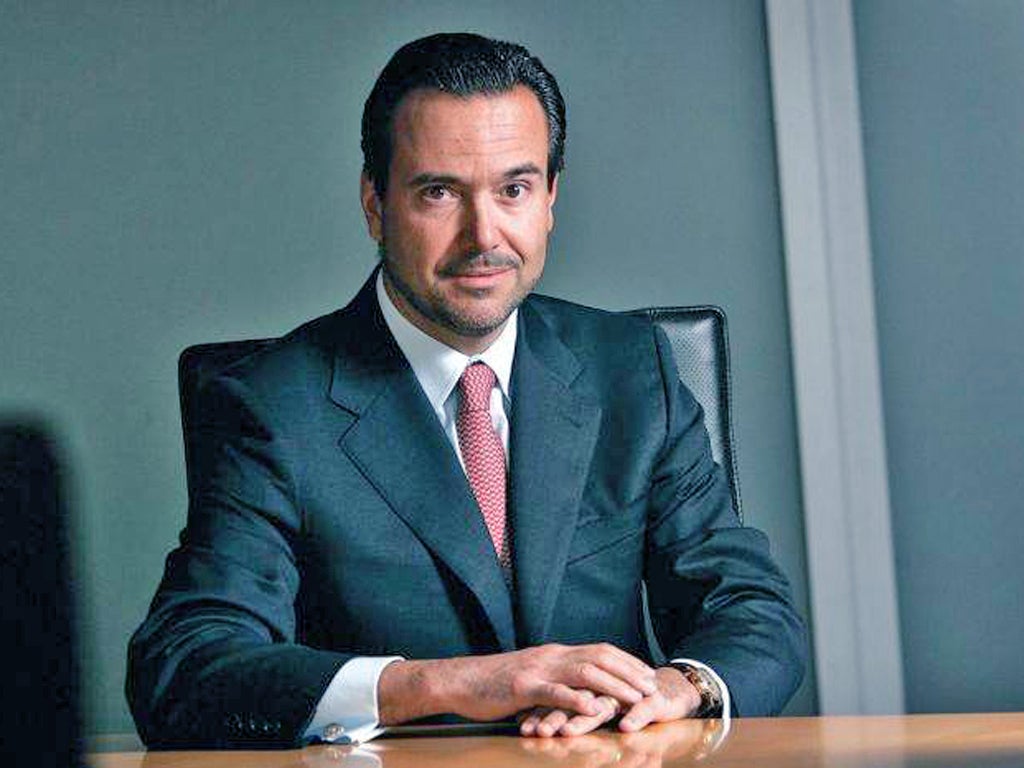Antonio Horta-Osorio: Insomnia and me
The Lloyds boss reveals battle to be allowed to return to work and tells Nick Goodway about his recovery from extreme exhaustion

Your support helps us to tell the story
From reproductive rights to climate change to Big Tech, The Independent is on the ground when the story is developing. Whether it's investigating the financials of Elon Musk's pro-Trump PAC or producing our latest documentary, 'The A Word', which shines a light on the American women fighting for reproductive rights, we know how important it is to parse out the facts from the messaging.
At such a critical moment in US history, we need reporters on the ground. Your donation allows us to keep sending journalists to speak to both sides of the story.
The Independent is trusted by Americans across the entire political spectrum. And unlike many other quality news outlets, we choose not to lock Americans out of our reporting and analysis with paywalls. We believe quality journalism should be available to everyone, paid for by those who can afford it.
Your support makes all the difference.He looked like becoming an unlikely casualty of the recession – the millionaire bank boss who could no longer do his job because he could not sleep at night. Yesterday, after Lloyds Banking Group announced the return of Antonio Horta-Osorio six weeks after he was signed off with insomnia, the chief executive revealed how exhaustion drove him to re-hab, and how recovery led him to a series of interviews for his own job.
In the first media interview since he stepped aside as chief executive of the bank at the end of October, he said: "With the benefit of hindsight I overdid it. I focused too much on too many details."
He described how the condition – which he and the bank refuse to call stress – crept up on him: "By the beginning of September I was beginning to have problems sleeping. I would go to bed exhausted but could not get to sleep. I could not switch off. I had never had this problem before. I was ending up with just two or three hours' sleep every night."
He added: "I understand now why they use sleep deprivation to torture prisoners."
Speculation grew in the City that Mr Horta-Osorio might never return to work when, in a highly unusual move in early November, Lloyds announced the bank's boss, 47, had stood aside after being ordered to rest because he was suffering from extreme exhaustion. Lloyds announced two stand-ins in case his return was delayed.
This week the bank gave him a clean bill of health and said he will return to work on 9 January. That followed an independent medical assessment prepared for the board and individual interviews with Mr Horta-Osorio by each of the other 16 directors.
Mr Horta-Osorio said it was his wife who urged him to seek help: "I sought medical advice and went to see a specialist. He told me that in effect my battery was so run down that it was virtually on zero. I went to the Priory for a week just to rest. Then I went home and was immediately sleeping eight hours a day. By then I felt extremely well and was telling the chairman I wanted to come back to work. I spent the next five weeks in London and Portugal and took a few restful trips.
"The treatment involved medicine to help me sleep and I am still on mild doses of that, which I expect to come off in the next few weeks." Mr Horta-Osorio's treatment was paid for under the bank's private medical insurance. He was astonished to learn how common insomnia is. "The official figures are that 30 per cent of the population suffers from sleep deprivation at some time but my specialist told me it was more like 50 per cent," he said.
Asked if his experience had taught him anything that other City workers could learn from, he said: "The message to people working in the City or anywhere else where they are under extreme pressure and suffering, with the benefit of hindsight, is to seek professional help immediately."
While some in the City question whether Mr Horta-Osorio can be as effective as chief executive now as he was before his illness, the Lloyds boss said: "I don't believe I have been damaged by this. The other side of the coin of sleep deprivation is that you can recover from it completely. If I did not feel completely well I would not have come back."
Join our commenting forum
Join thought-provoking conversations, follow other Independent readers and see their replies
Comments